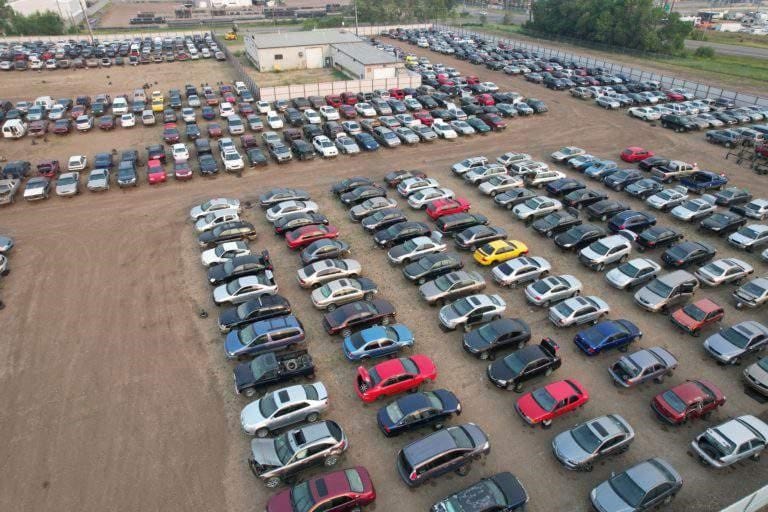If you’re shopping for a used vehicle, you may have come across listings from a salvage auto auction — platforms where damaged, totaled, or otherwise non-traditional cars are sold to the public. Salvage auctions are no longer just for licensed dealers or scrapyards. With the rise of online platforms, almost anyone can bid on a wide variety of vehicles — from electric cars to luxury SUVs and even motorcycles.
But how does it work, and is it safe for a first-time buyer? In this guide, we’ll break down what salvage auto auctions are, how to navigate them, and how to avoid common mistakes.
What Is a Salvage Auto Auction?
A salvage auto auction is a marketplace where damaged or totaled vehicles are sold, often after being written off by insurance companies. Vehicles in these auctions might include:
● Accident-damaged cars
● Flood-damaged or hail-damaged vehicles
● Theft recoveries
● Mechanical non-runners
● Abandoned or impounded vehicles
● Repossessed cars
These auctions also include clean-title vehicles, but the core inventory typically consists of vehicles with salvage titles, meaning they have been declared total losses due to damage or insurance claims.
MORE NEWS: How the West Valley technology sector is booming
INDUSTRY INSIGHTS: Want more news like this? Get our free newsletter here
Who Sells at Salvage Auctions?
Sellers include:
● Insurance companies – Offloading total loss vehicles
● Dealerships – Moving unsold or high-mileage inventory
● Rental car companies – Disposing of fleet vehicles
● Financial institutions – Selling repossessed vehicles
● Towing companies – Auctioning abandoned cars
● Government agencies – Retiring surplus or impounded vehicles
Who Can Buy From Salvage Auctions?
Traditionally, only licensed dealers or dismantlers could access these auctions. But now, many platforms allow public participation, either directly or through a broker. Some sites still require a dealer license to bid on certain vehicles, but others offer a wider range of access:
● Public auctions – Anyone can register and bid
● Broker-assisted access – A licensed intermediary bids on your behalf
● Dealer-only auctions – Restricted to those with valid licenses
Before registering, check the auction’s requirements for your state or region.
Types of Vehicles You’ll Find
You can find nearly every type of vehicle at a salvage auto auction:
● Sedans and hatchbacks
● Pickup trucks and SUVs
● Motorcycles
● Commercial vehicles
● Exotic and luxury cars
● Recreational vehicles (RVs)
● ATVs and off-road vehicles
Each listing includes a vehicle description, title status, and (usually) photos of the damage. Some auctions offer inspection reports, while others are sold strictly as-is.
Why Do People Buy From Salvage Auto Auctions?
Salvage auctions attract a wide range of buyers:
1. Mechanics and Rebuilders
Skilled professionals buy repairable vehicles, restore them, and either drive them or sell for a profit.
2. DIY Enthusiasts
Experienced hobbyists use auctions to find affordable project cars or parts vehicles.
3. Resellers
Flippers purchase undervalued vehicles, fix them cheaply, and resell.
4. Exporters
Buyers from other countries purchase vehicles for markets where damage and title branding are less of a concern.
5. Budget Car Buyers
Some people simply want a cheap car they can fix up and drive, especially if they don’t mind cosmetic issues.
Pros of Buying at a Salvage Auto Auction
There are many advantages if you know what you’re doing:
1. Lower Prices
Vehicles are often sold far below market value, even after repairs. This can be an affordable entry point for buyers who know what to look for.
2. Wide Selection
Salvage auctions have a constantly rotating inventory, including hard-to-find models or unique builds.
3. Direct Access
Online platforms allow buyers to access inventory across the country (or internationally), often with tools to filter by condition, location, or damage type.
4. Potential for Profit
Buyers with repair knowledge or access to parts can make money by reselling rebuilt vehicles.
5. Access to Parts Vehicles
Even if a vehicle can’t be repaired, it may still offer valuable components for other projects.
Cons and Risks
There are real risks too, especially for first-time buyers:
1. No Test Drives
Most auction vehicles can’t be driven before purchase. You’re relying on photos and reports to assess the damage.
2. As-Is Sales
All vehicles are sold without warranty, guarantees, or returns. If something’s wrong, it’s your problem.
3. Title Issues
Many auction cars have branded titles (salvage, rebuilt, flood, etc.), which can affect registration and resale.
4. Limited Inspection Opportunities
Some auctions don’t allow in-person inspection or only offer limited access.
5. Unknown Damage
Not all damage is visible in photos. There may be frame, suspension, or engine issues that only become apparent later.
How to Prepare for a Salvage Auction
If you’re new to salvage auctions, here’s how to prepare:
1. Register on a Reputable Platform
Popular platforms offer registration to the public or through brokers. Look for platforms that provide:
● Clear damage descriptions
● High-resolution photos
● Vehicle history reports
● Title details
2. Learn the Bidding System
Some auctions use live bidding; others use timed or proxy bidding. Learn how the system works before placing a bid.
3. Set a Strict Budget
Set a hard limit for what you’re willing to spend — and stick to it. Don’t forget to factor in:
● Buyer’s fees
● Taxes and title transfer costs
● Transport and shipping
● Repairs
4. Run a VIN Check
Use the vehicle identification number (VIN) to research its history. Services can reveal:
● Prior accidents
● Title status
● Mileage records
● Flood or theft history
5. Understand Title Laws in Your State
Every state has different rules for registering salvage or rebuilt vehicles. Some require inspections; others restrict use. Know the laws before you buy.
6. Be Realistic
You’re unlikely to score a flawless car for pennies. Most vehicles at salvage auctions need work. Be honest with yourself about your repair skills, budget, and time commitment.
Tips for First-Time Buyers
1. Start Small
Begin with a lower-cost vehicle to get a feel for the process. Don’t jump into an exotic car or rare model without experience.
2. Avoid Severe Frame Damage
Frame or unibody damage can be costly and may render a vehicle unsafe. Look for “run and drive” cars with cosmetic damage first.
3. Look for Theft Recovery or Hail Damage
These vehicles often have minor mechanical damage and are easier to repair compared to collision or flood-damaged vehicles.
4. Research Common Issues
Before bidding on a specific make or model, research its known mechanical problems and how expensive they are to fix.
5. Use a Broker if Needed
If the auction is dealer-only, consider using a licensed broker who can bid and handle paperwork for you.
After You Win: What’s Next?
Once you’ve successfully won a vehicle at auction:
● Pay any fees or deposits promptly
● Arrange transport (most auctions don’t offer free delivery)
● Begin repairs or inspection process
● Handle title transfer and any necessary DMV inspections
● Insure and register the vehicle
Keep all documentation for your records — especially if you plan to sell the car later.
Should You Buy at a Salvage Auto Auction?
A salvage auto auction can be a great place to find deals — if you have the knowledge, patience, and financial buffer to deal with the risks. It’s ideal for:
● People with mechanical experience
● Buyers looking for parts or project cars
● Those comfortable with risk and research
● Anyone seeking a cheaper alternative to dealer prices
It may not be right if:
● You need a reliable daily driver immediately
● You can’t afford unexpected repairs
● You’re unfamiliar with vehicle inspection or title laws
● You’re uncomfortable buying “as-is”
Final Thoughts
Salvage auto auctions open a door to affordable vehicles — but it’s a door that leads into unfamiliar territory for many buyers. Whether you’re hunting for a bargain commuter car, a unique project, or a parts donor, the auction route offers real opportunity if approached carefully.
Take your time, do your research, and know your limits. With the right mindset and preparation, you can turn a salvage auction into a smart, cost-effective buying experience.




